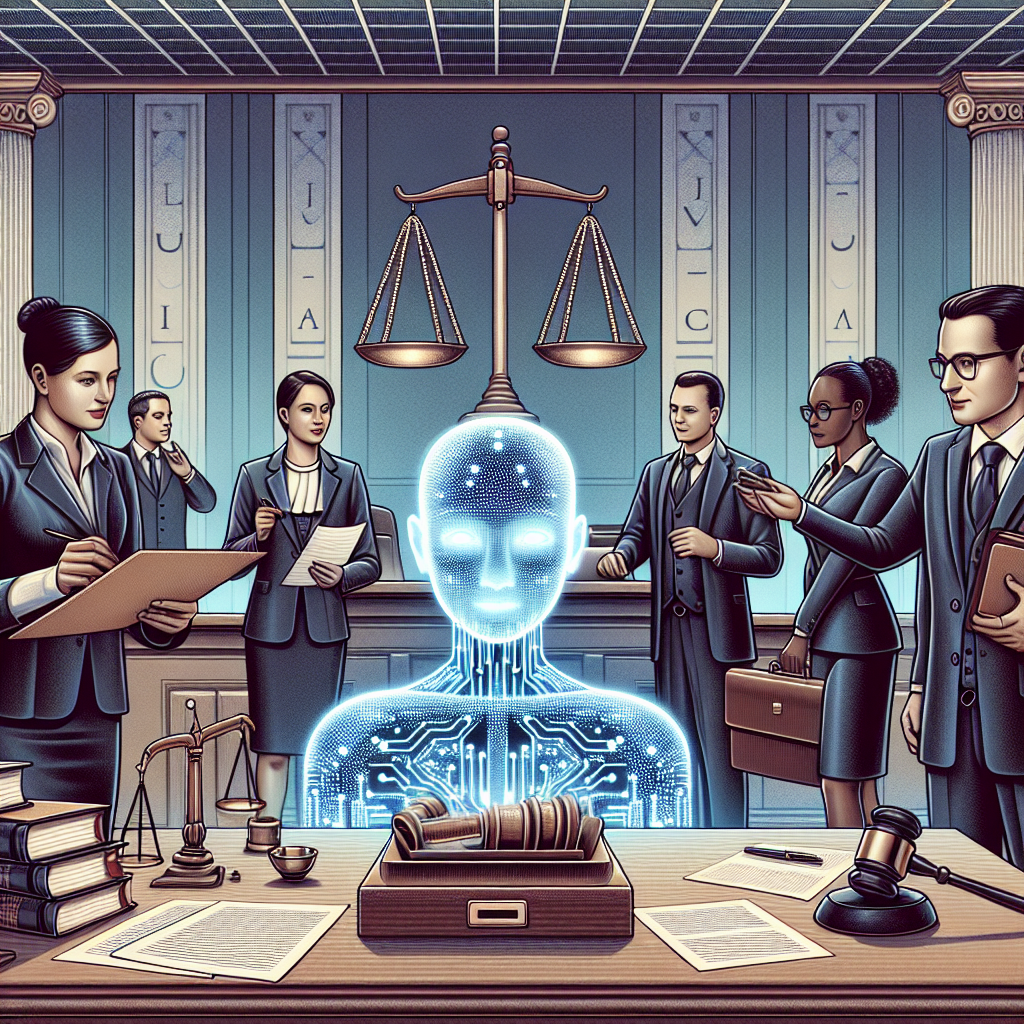The Role of AI in Legal Contract Drafting and Review
In the world of law, contracts are essential documents that lay out the terms and conditions of a business agreement. These agreements can range from simple rental agreements to complex mergers and acquisitions deals. The process of drafting and reviewing contracts can be time-consuming and tedious, requiring lawyers to carefully analyze every word and clause to ensure that the agreement is legally sound and protects the interests of their clients.
In recent years, the legal industry has seen a rise in the use of artificial intelligence (AI) technology to assist with contract drafting and review. AI has the potential to revolutionize the way contracts are created and analyzed, making the process more efficient, accurate, and cost-effective. This article will explore the role of AI in legal contract drafting and review, its benefits, challenges, and the future of AI in the legal industry.
Benefits of AI in Legal Contract Drafting and Review
One of the main benefits of using AI in contract drafting and review is its ability to automate repetitive tasks, saving lawyers time and reducing the risk of human error. AI-powered contract drafting tools can generate templates based on predefined clauses and standard language, allowing lawyers to quickly create contracts without having to start from scratch. These tools can also help identify potential legal issues and inconsistencies in the contract, flagging them for further review by the lawyer.
AI can also streamline the review process by analyzing large volumes of contracts quickly and accurately. AI-powered contract review tools can scan contracts for specific keywords, clauses, or provisions, allowing lawyers to focus on the most critical aspects of the agreement. This can help lawyers identify potential risks or opportunities in the contract more efficiently and make informed decisions based on the data provided by the AI tool.
Another benefit of using AI in contract drafting and review is its ability to improve the quality and consistency of contracts. AI-powered tools can ensure that contracts comply with legal requirements and industry standards, reducing the likelihood of errors or omissions in the agreement. This can help lawyers deliver higher quality work to their clients and build trust and credibility in their practice.
Challenges of AI in Legal Contract Drafting and Review
While AI has many benefits in legal contract drafting and review, there are also challenges and limitations that need to be considered. One of the main challenges is the lack of human judgment and intuition that AI tools bring to the table. AI algorithms are based on data and logic, which may not always capture the nuances and complexities of legal language and interpretation. This can lead to errors or misinterpretations in the contract, which may have legal consequences for the parties involved.
Another challenge is the potential for bias in AI algorithms. AI tools are trained on historical data, which may contain biases or inaccuracies that can impact the outcomes of the contract review process. It is essential for lawyers to be aware of these biases and take steps to mitigate them when using AI tools in their practice.
Furthermore, the use of AI in legal contract drafting and review raises concerns about data privacy and security. AI tools may have access to sensitive client information and confidential data, which could be at risk of unauthorized access or data breaches. Lawyers must ensure that they are using secure and compliant AI tools that protect client data and adhere to data privacy regulations.
Future of AI in the Legal Industry
Despite the challenges, the future of AI in the legal industry looks promising. As AI technology continues to evolve and improve, it has the potential to transform the way lawyers work and deliver legal services to their clients. AI-powered contract drafting and review tools will become more sophisticated and intelligent, enabling lawyers to streamline their workflow, save time, and improve the quality of their work.
In the future, AI may also play a more significant role in predicting legal outcomes and providing strategic advice to lawyers and their clients. AI algorithms can analyze large volumes of legal data and precedents to identify trends, patterns, and insights that can help lawyers make informed decisions and develop winning legal strategies. This can give lawyers a competitive edge in the legal market and enhance their ability to deliver value to their clients.
FAQs
Q: How does AI technology improve the efficiency of contract drafting and review?
A: AI-powered contract drafting tools can automate repetitive tasks, generate templates, and analyze large volumes of contracts quickly and accurately, saving lawyers time and reducing the risk of human error.
Q: What are the benefits of using AI in legal contract drafting and review?
A: AI can streamline the review process, improve the quality and consistency of contracts, and help lawyers identify potential risks or opportunities in the agreement more efficiently.
Q: What are the challenges of using AI in legal contract drafting and review?
A: Challenges include the lack of human judgment and intuition, potential bias in AI algorithms, and concerns about data privacy and security.
Q: What is the future of AI in the legal industry?
A: The future of AI in the legal industry looks promising, with AI technology continuing to evolve and improve, enabling lawyers to streamline their workflow, make informed decisions, and deliver value to their clients.
In conclusion, AI technology has the potential to revolutionize the way contracts are created and analyzed in the legal industry. By automating repetitive tasks, improving efficiency, and enhancing the quality and consistency of contracts, AI can help lawyers deliver higher quality work to their clients and make informed decisions based on data-driven insights. While there are challenges and limitations to using AI in legal contract drafting and review, the benefits far outweigh the risks, and the future of AI in the legal industry looks promising.

